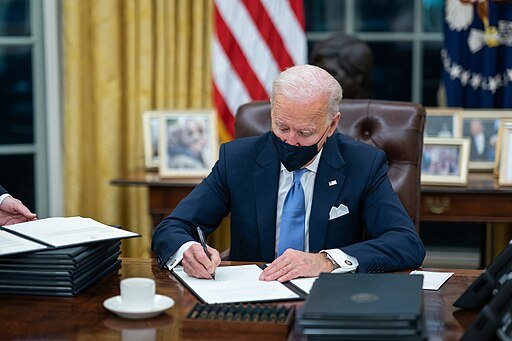
President Joe Biden’s latest move to impose steep tariff hikes on various Chinese imports, including electric vehicle (EV) batteries, computer chips, and medical products, signals a risky strategy aimed at bolstering his economic credentials amid voter skepticism.
While maintaining tariffs set by his predecessor, Donald Trump, Biden’s administration is significantly increasing tariffs on key goods, such as EVs and semiconductors. These measures, affecting $18 billion in Chinese imports, are perceived as a response to ongoing issues like forced technology transfer and intellectual property theft.
The U.S.-China trade gap, a longstanding concern, has prompted Biden to adopt a tough stance, aligning with Trump’s approach while criticizing the former president’s broader trade policies.
Despite concerns over potential inflation, Biden’s team insists that targeted tariff increases, coupled with domestic investment, will not exacerbate existing economic challenges.
However, Trump has criticized the new tariffs, advocating for broader measures against Chinese imports. Analysts warn that such trade tensions could negatively impact EV costs and hinder Biden’s environmental and economic objectives.
While Biden aims to navigate competitive pressures with China without escalating into a full-blown trade war, his administration’s tariff hikes mark a departure from traditional free-trade principles.
These tariff adjustments, authorized under Section 301 of the Trade Act of 1974, cover a range of products from EVs to medical equipment. China has swiftly denounced the move, promising countermeasures to safeguard its interests.
As tensions escalate, the future of U.S.-China trade relations remains uncertain, with potential implications for global markets and geopolitical dynamics.








